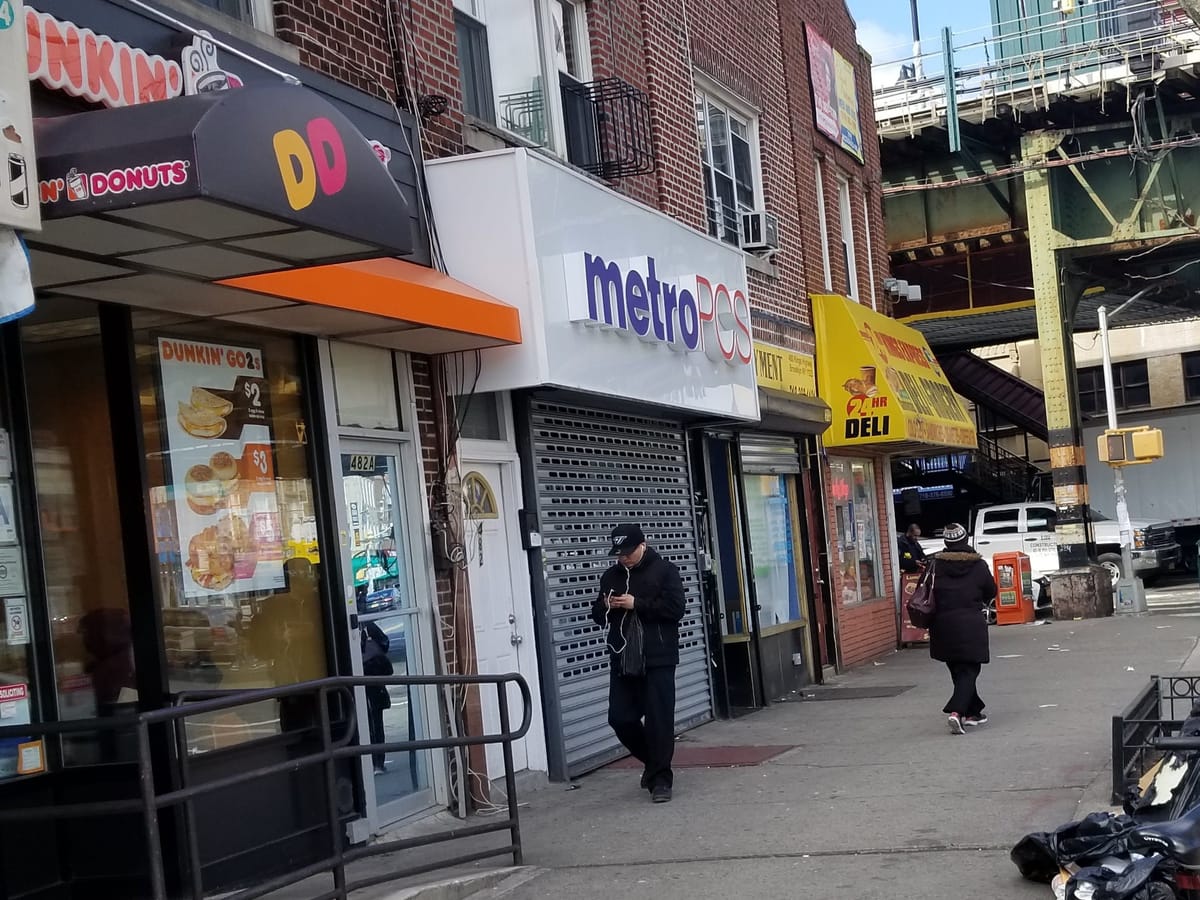One of Every Ten Brooklyn Chain Stores Closed in 2020


More than one in every ten chain stores across Brooklyn closed in 2020, as retailers faced immense challenges stemming from the coronavirus outbreak and subsequent business shutdowns.
That’s according to the latest “State of the Chains” report released last month by the urban policy think tank Center for an Urban Future (CUF). The report found that the number of chain stores in the borough fell from 1,736 to 1,535, a staggering drop of 11.6% that was second only to the 17.4% drop in Manhattan.
These two boroughs were not unique; more than 1,000 chain stores across the city—slightly less than one out of every seven that were open in December 2019—closed their doors last year, a result of the difficulties facing retailers of all sizes during the pandemic, as well as the increasing dominance of e-retailers as customers stayed home.
“The pullback was broad-based among all sectors,” the report said, “with meaningful declines among sandwich shops, fast food burger chains, ice cream and yogurt chains, as well as among health clubs and exercise studios.
The 2020 drop was the second year in a row in which all five boroughs registered a decline in the number of chains, but was the first year in which those declines topped 10%.
“It’s a reminder that there’s no sector of the economy that’s immune from what’s happening,” said Randy Peers, President & CEO of the Brooklyn Chamber of Commerce. “Whether chain stores or mom-and-pop, they’re getting hit hard.”
Dunkin’ remains the largest retailer in Brooklyn (and in the city generally), but even the coffee-and-donut chain closed stores, dropping from 636 locations citywide to 618. That was the first overall decline for Dunkin’ since CUF began tracking chains thirteen years ago. Only one Brooklyn location closed, leaving the borough with a total of 140 stores.
Harder hit in Brooklyn were MetroPCS (which closed 47 stores), Baskin-Robbins (17 closures), Duane Reade (16), and Subway (4).
Peers suggested that a combination of increased e-commerce activity, an exodus of Manhattan office workers and residents to the outer boroughs, and the over-saturation of certain chains combined with the pandemic “all came together to take a toll on these chains.”
He also distinguished between centrally-run corporate chains and those operating under a franchise model, including Baskin-Robbins and Subway, in which the owners of individual locations are often small-time entrepreneurs, many of them immigrants.
The Chamber launched a “Bring Back Brooklyn Fund” to support small businesses struggling during the pandemic, but Peers also criticized new “just cause” worker protections recently signed into law by Mayor Bill de Blasio, which he argued placed unnecessary burdens on businesses already struggling to stay afloat.
“They should have read this report before they went full steam ahead and hit businesses with another obstacle,” Peers said.
Other Brooklyn-specific tidbits from the CUF report:
- After Dunkin’, the chains with the largest presence in Brooklyn were Metro PCS (112 locations), T-Mobile (68), McDonald’s (50) and Duane Reade (47).
- 11201, a zip code that includes Brooklyn Heights and Downtown Brooklyn, had the largest number of national retailers in the borough at 136, down from 166 in 2019.
- Brooklyn contains 22.3% of the city’s chains. That’s up about 2% from six years ago.
- The borough has 22 chain stores per square mile, significantly less than Manhattan’s 107 but more than the other three boroughs.




